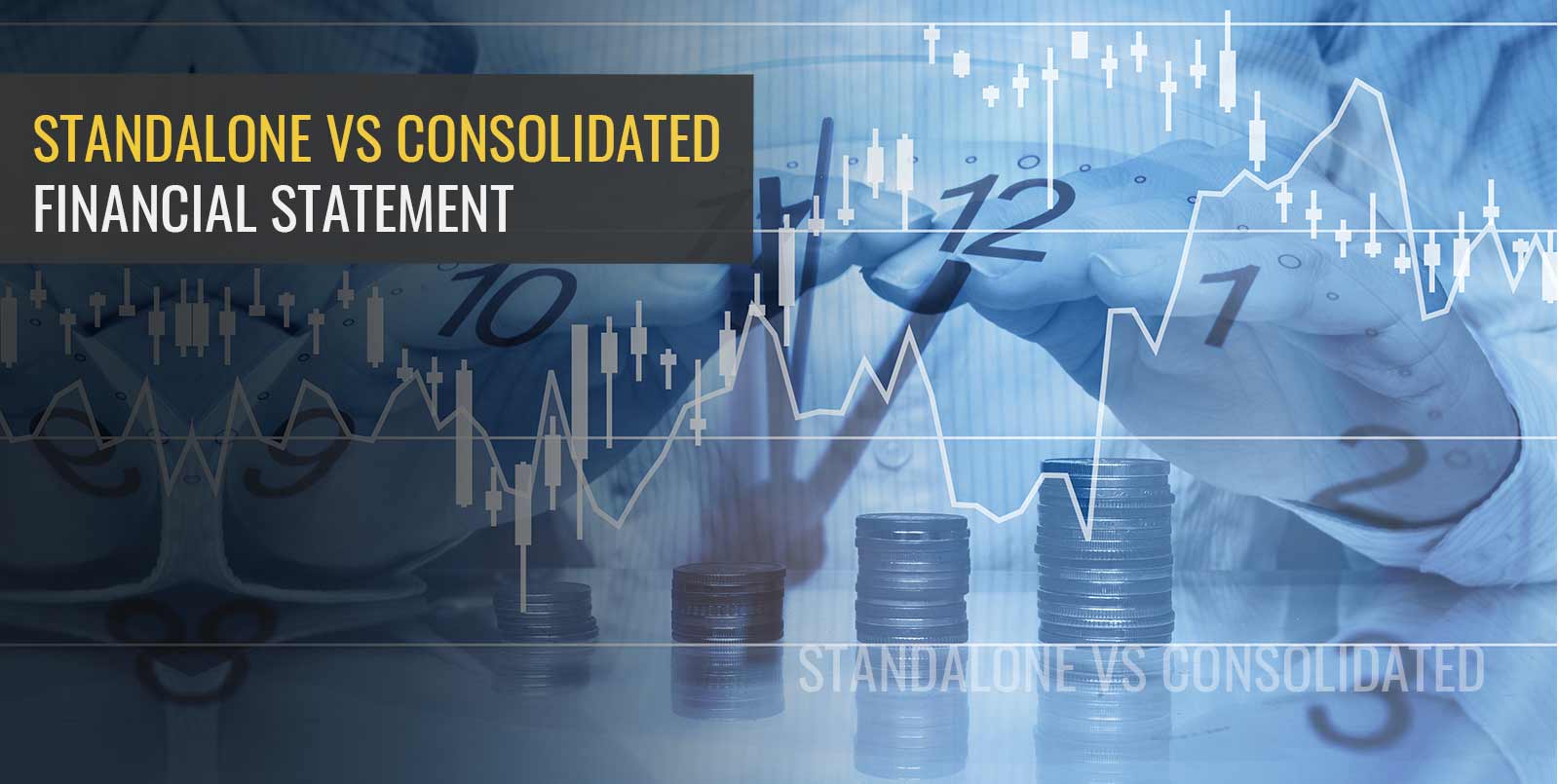

An investor must understand the financial performance of a company. Researching and evaluating financial reports is critical before you bet your hard-earned money. Public companies issue two types of financial statements – consolidated and standalone. This article discusses the financial statement types.
As the name suggests, a consolidated statement gives insights into the company’s financial performance, including all its subsidiaries, associate companies and joint ventures. If you are analysing the financial reports of a large business group, then a consolidated report gives a better glimpse of all its companies together.
There is the standalone statement if you want insight into a single company’s performance.
By analysing the standalone statement, the investor might not learn about the positions of the company’s subsidiaries and associate companies.
For instance, the parent company may be debt-free when you plan to invest, but a subsidiary can be heavily debt-laden. So, you will miss vital information if you study only the standalone report.
Conversely, the consolidated report will reveal the debt position of the subsidiaries.
So, if you want to know how all the businesses of a large organisation have impacted its performance, you need to look at the consolidated statement. For individual analysis, it is the standalone statement that you should consider.
Most investment experts recommend that investors look at a consolidated statement before buying shares. It gives a comprehensive picture of the company, its subsidiaries, and holding companies. If you look at a standalone statement, you will get only a partial idea of the company’s performance. It can lead to errors in judgement.
Let’s consider a real-life example.
Reliance Industries is the primary listed company of the Reliance group, whereas Jio or Reliance Retail are its subsidiaries. If you look only at the standalone report of RIL, it will only state the performance of Reliance Industries’ businesses. You must consult the consolidated information to gain an overall idea about all RIL’s subsidiaries and holding companies.
Studying a standalone report might lead to missing vital information regarding subsidiaries’ profit-loss or debt position. Studying the consolidated balance sheet offers a better insight into the company’s financial performance.
Many investors calculate the P/E ratio of the company to make investment decisions. When looking at the P/E ratio of a large company with subsidiaries and associate companies, always measure consolidated P/E and not individual P/E ratios.
However, if you want a comparative analysis of a company with peers, you need the standalone P/E ratio.
Since company subsidiaries form a single economic entity, investors, experts, and regulators find consolidated statements more efficient in analysing the overall position of the business. For instance,
The parent and the subsidiary company may perform transactions between them.
The parent company may offer a financial bailout to the subsidiary during a struggling time and hope to recover the expense from its operation.
Transactions of this nature will be included in the standalone reports because it affects the profitability of single entities but not on the consolidated balance sheet because of no impact on the overall position of the large company.
Maybe a consolidated financial statement is given more weight in evaluating investment prospects, but you mustn’t ignore standalone results. For example, Info Edge, which owns Naukri.com, is a highly successful company. But some of its other investments like Zomato and Policybazaar are yet to break even. In this case, the consolidated financial report of Info Edge may not look very attractive. But it doesn’t necessarily make any of these companies bad for investment.
A company releases financial results every three months. These are critical documents for prospective investors and experts to evaluate a company’s financial position before making an investment decision. From The above understanding of consolidated and standalone statements, we see that studying the consolidated financial statement is often better than analysing standalone financial statements.
If you are now ready to invest, open a demat account with Angel one today.
Published on: Aug 30, 2022, 4:26 PM IST
We're Live on WhatsApp! Join our channel for market insights & updates
